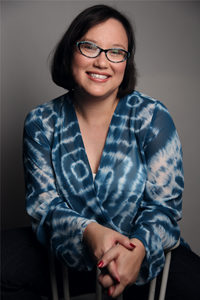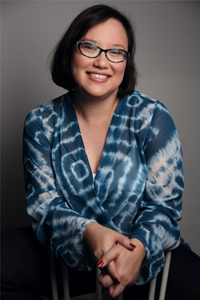 This month’s member spotlight is Meilee Bridges. Most recently known as the mastermind behind WCA Resume Review sessions, Meilee talks about how she got involved with the WCA and tells us a little about her journey in the communications field. With some candid advice, Meilee’s two cents is exactly what we hope to hear from a fellow communications professional.
This month’s member spotlight is Meilee Bridges. Most recently known as the mastermind behind WCA Resume Review sessions, Meilee talks about how she got involved with the WCA and tells us a little about her journey in the communications field. With some candid advice, Meilee’s two cents is exactly what we hope to hear from a fellow communications professional.
How are you involved with WCA?
I started off just by attending Careers over Coffee North as a member. Within a few months, the amazing and supportive Karen Aroian, who was then VP of Student Programming, invited me to be part of her new volunteer Student Outreach Committee; I coordinated and hosted the College over Coffee events each semester at UT and Texas State and just helped Karen out with events such as Speed Mentoring. Near the end of 2015, I became the WCA Résumé Review volunteer, and I also led a workshop on résumés for WCA this past March. At some point, I plan to apply for the position of mascot because I’ve always wanted to wear one of those costumes.
What makes WCA special to you?
It’s a supportive organization. When I first started attending CoCN, I introduced myself by mentioning that I was considering leaving my job, and the women at the table didn’t judge me; they were sympathetic. When I reported at the next CoCN that I had taken the leap, quit my job, and started my own business, everyone cheered. Over the next several months, networking with other members and attending various WCA events helped boost my career confidence, which had been at its nadir for years. I am really grateful that WCA introduced me to several new friends who are some of my warmest champions.
What is your professional career and experience?
I’m not sure I have a career so much as I am a hydra with tentacles in various fields related to writing, which is why my tagline is “I do things with words for a living.” I teach and tutor academic writing at the high school and college levels; I teach workshops and individually coach how to write résumés, cover letters, admissions essays/personal statements, and business communications; I edit dissertations and academic manuscripts; and I write copy for Starwood Hotels and Resorts Worldwide, Inc. I also compose a lot of lists and am a standard-bearer for serial commas and semicolons.
What is your educational background?
I have a BA in Honors English, with minors in Latin, Women’s Studies, and Comparative Literature, from Trinity University in San Antonio. I have an MA and a PhD in English Language and Literature from the University of Michigan in Ann Arbor. I am a first-generation college graduate, and I scampered from high school to college to graduate school without breaks, which I would never recommend to anybody.
How did you start The Good Word Consulting Services, and what prompted you to do so?
I’d say years of peer pressure was the impetus. I never intended to be an entrepreneur. Instead, my goal since the age of 11 was to become a professor of English; I even did a research project on it when I was a sophomore in high school to make sure it was the right path for me. And until 2011, I was lucky enough to pursue and fulfill that goal: I loved teaching literature and writing at various universities, researching and publishing on British literature and classical reception, and even serving on committees (because I have a penchant for organizing events). However, I was never able to land a tenure-track position because the job market in the humanities is its own circle of hell, so after cobbling together simultaneous work as an adjunct professor, a university program coordinator and webmaster, a freelance editor, and an online tutor for several years, I decided to listen to friends and family who were encouraging me to strike out on my own. I used my research skills to start my own business so that I could be my own boss <whispering>and start making more than minimum wage</whispering>.
What is the most important thing you have learned from your career, and do you have any advice for people starting out in the communications field?
Be flexible, be adaptable, and don’t give up. Be open to unexpected opportunities. I’ve learned that you can be at the top of your game and doing everything right, but your dream career—the profession you worked hard for, devoted your life to, and loved for years or even decades—can just slip through your fingers or never even materialize to begin with. Maybe the job market is dismal, maybe your company downsizes, maybe your personal life requires you to switch priorities, or maybe your dream job turns out to be an unholy nightmare. Whatever the reason, jobs come and go; you have to push on, mostly because of the human need for food, water, and shelter, all of which must be paid for with money. This is turning into either a Gloria Gaynor or ABBA song now (look them up, young padawans), but just know that having a Plan B, Plan C, or Plan Z (in case of zombies) is always a good idea, and if you have no idea what those alternative plans might be, then turn to your network of friends, family, and colleagues for help. Oh, and pets and partners make for good therapy. So does therapy.
- 6 Ways to Improve Gender Equality - March 11, 2019
- Get Smart Session Two: What Is UX? Why Is it So Important in Design? - October 15, 2017
- Get Smart Panel Q&A: An Inside look at “When Your Picture’s Worth a Thousand Words” - October 8, 2017

